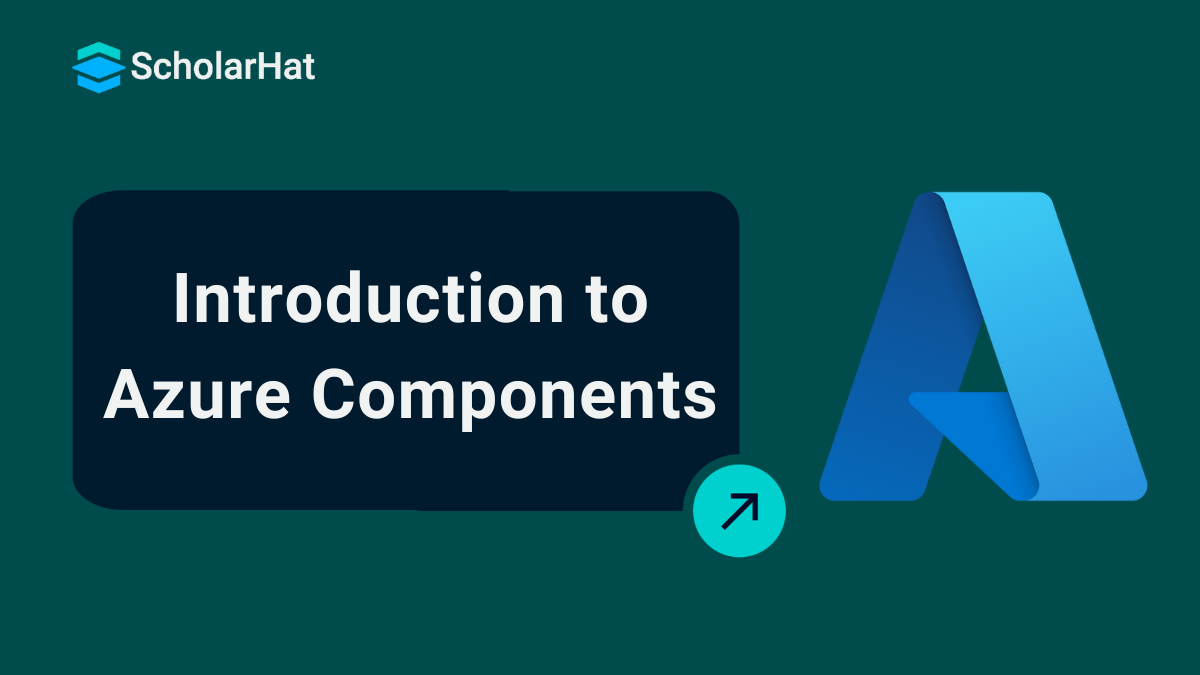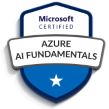06
FebTop 15 Amazing Azure Components
Azure Components
Azure components consist of a range of tools and services created to support cloud computing, data management, and application development. When going through the Azure ecosystem you will come across Azure Components that collaborate to streamline operations and boost security.
In this Azure Tutorial, we will go through some of the Azure components that serve as the foundation of Microsoft's cloud platform. Whether you aim to host web applications, handle datasets, or utilize advanced analytics capabilities grasping these components will equip you with a sturdy groundwork to unleash Azure's full potential. Entry-level cloud jobs with Azure skills pay up to $10,000 more annually. Start with our Free Azure Fundamentals Training today!
15 Components of Azure
1. Compute or execution models
Azure's services provide the infrastructure. The infrastructure required to run applications and carry out intricate computations. Important services include:
Virtual Machines (VMs)
- It swiftly sets up Windows or Linux virtual machines.
Azure Kubernetes Service (AKS)
- Kubernetes is employed for the management and deployment of containers, for applications.
- It leverages an infrastructure to execute serverless, event-driven programs.
2. Storage
Azure Storage manages huge amounts of unstructured data. The replacement of these storages consists of:
- It stores information, like text or binary data in a blob storage system.
Disk Storage
- Provides secure and durable disk options, for machines.
File Storage
- Offers access to managed file shares that are compatible, with SMB.
3. Database To meet various demands
Azure offers a range of database services, including:
- The Azure SQL database is a managed database that can scale up or down based on demand.
- Cosmos DB is a flexible database service that's available worldwide and supports data models.
Azure Database, for MySQL and PostgreSQL
- Azure provides managed services for MySQL and PostgreSQL databases to meet the requirements of users who prefer open-source databases.
4. Authentication And Security
In cloud services, authentication and security are needed. Azure provides features to ensure access and data protection such, as;
Azure Active Directory
- Azure Active Directory (AD) is a cloud-based identity and access management system.
Azure Key Vault
- This tool can be used to manage keys, certificates, and secrets safely.
5. Establishing Network
Your apps will have dependable and safe connectivity thanks to Azure's networking services:
Virtual Networks
- Azure Cloud's separated networks are called virtual networks, or VNets.
Azure Load Balancing
- This technology allows traffic to be shared among multiple virtual machines.
Azure DNS
- You can host your DNS domains on Azure.
6. Monitoring
Azure provides powerful monitoring capabilities to guarantee the functionality and health of your applications:
Azure Monitor
- Azure Monitor gathers, analyzes, and responds to data, from both your Azure environments.
Application Insight
- Using Application Insight allows you to detect, prioritize and address concerns, within applications.
7. Web-Based Services
You can create and host web apps and APIs with the aid of Azure's web services:
Azure App Service
- Azure App Service allows you to develop, deploy, and expand web applications and APIs efficiently.
Azure CDN
- Azure CDN enables users to access content globally.
8. Mobile Services
Azure offers resources for creating and implementing mobile apps, including:
Azure Mobile Apps
- Azure Mobile Apps enable the creation of cloud-connected applications, for platforms, through Azure Mobile Apps.
Azure Notification Hubs
- Using Azure Notification Hubs you can easily send notifications, from any system to various platforms.
9. Management of Data
Azure's data management services guarantee that your data can be processed effectively and is stored safely:
- Azure Data Lake is an analytical and scalable data storage solution.
Azure Data Factory
- Organize and automate data transformation and transfer using Azure Data Factory.
| Azure Data Factory Interview Questions |
10. Messaging
Azure offers messaging capabilities to facilitate communication between applications that are distributed:
Azure Service Bus
- Azure Service Bus is a cloud messaging platform that provides both topics and queues.
Event Grid
- I used a managed event routing solution to simplify applications, on events.
11. Caching
Azure provides caching options to increase the scalability and performance of your applications:
Azure Cache for Redis
- Azure caching for Redis is an entirely managed in-memory caching solution.
12. Azure Backup
Azure Backup offers dependable and easy-to-use data security:
Azure Backup
- You can Safeguard your cloud-based apps and data with Azure Backup.
13. Media
- Azure provides media services for organizing, distributing, and streaming media material.
- You can encode, store, and stream audio and video at scale using Azure Media Services.
14. Commerce
Azure provides e-commerce options to assist you in developing and expanding your web business:
Azure Marketplace
- The Azure Marketplace facilitates exploring, testing, and buying Azure-built apps and services.
15. Software Development Kit (SDK)
Azure SDKs make development easier by offering the following frameworks and tools:
Azure SDKs:
- Programming languages supported by Azure SDKs include .NET, Java, Python, and JavaScript.
Conclusion:
Azure's all-inclusive services enable companies to develop, implement, and oversee applications effectively. Azure offers all the components required to build reliable and scalable cloud systems, from storage and processing to databases and security.
Cloud developers with Azure skills earn 30% more on average. Don’t miss out—join our Azure Developer Associate course today!
FAQs
Take our Azure skill challenge to evaluate yourself!

In less than 5 minutes, with our skill challenge, you can identify your knowledge gaps and strengths in a given skill.









